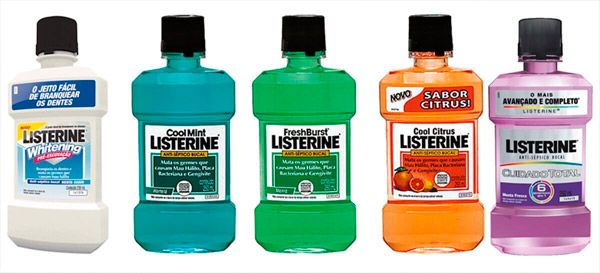New publications
Mouthwash and a cure for gonorrhea.
Last reviewed: 02.07.2025

All iLive content is medically reviewed or fact checked to ensure as much factual accuracy as possible.
We have strict sourcing guidelines and only link to reputable media sites, academic research institutions and, whenever possible, medically peer reviewed studies. Note that the numbers in parentheses ([1], [2], etc.) are clickable links to these studies.
If you feel that any of our content is inaccurate, out-of-date, or otherwise questionable, please select it and press Ctrl + Enter.

Listerine, a mouthwash used today, was released in the late 19th century, when its developers claimed that the drug effectively treated gonorrhea. At the time, this claim did not arouse much interest in the scientific community, but the composition of the now popular mouthwash has not changed since 1895. It is worth recalling that today, scientists are greatly concerned about the developing resistance of bacteria to antibiotics, and gonorrhea is no exception, as it is no longer treatable with many existing drugs.
At Monash University in Australia, an independent team of researchers decided to conduct an experiment to find out whether a mouthwash could really help treat gonorrhea.
Gonorrhea is a fairly common disease that is transmitted mainly sexually. Homosexuals are at risk. The disease is caused by gonococcus bacteria. Symptoms of gonorrhea do not appear in 10% of cases in men, and 80% of cases in women, but the bacteria can provoke serious complications, including oncology (most often prostate cancer).
For their experiment, Australian scientists chose volunteers among homosexuals. This choice was not made by chance, since up to 70% of cases of gonorrhea among men are diagnosed among representatives of sexual minorities.
Scientists noted that if Listerine is able to suppress the growth of gonococci, then this drug could become a simple, accessible and inexpensive way to treat and prevent gonorrhea today.
Initially, the effect of Listerine on bacteria was studied in laboratory vessels and the results of this experiment were quite promising. Among the volunteers, of whom there were about 200 people, 58 had gonococcus bacteria in their mouths. All those who had bacteria were divided into 2 groups, in one, the participants rinsed their mouths with a salt solution for 5 minutes, in the second, with Listerine for 1 minute. After some time, scientists did another analysis and found that in the first group, the effectiveness of treatment was much higher (84%). In the group where participants rinsed their mouths with Listerine, the percentage of recovery was slightly more than 50%, but scientists are sure that this is a good result. In addition, experts are sure that when rinsing the mouth with a saline solution, the throat was affected in one way or another, while when rinsing with Listerine, only the mouth was rinsed.

In any case, the results obtained are just the beginning and scientists still have a lot of work to do, in particular, they intend to develop an analogue of Listerine that would be suitable for use in more delicate places. Nevertheless, Listerine has shown good results and scientists recommend using it for oral cavity prevention.
According to some sources, the drug was invented as a surgical antiseptic, but after some time it began to be used as a remedy for gonorrhea and a floor cleaner.
Listerine has only been used as a mouthwash since the 1920s.

 [
[